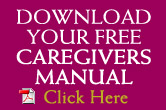What is a Will and How Does a Will Work?
It is more critical than ever with our unpredictable economy that families do the proper estate planning. Otherwise, all of the assets that they worked so long and hard to build and preserve, could be wasted on probate court, taxes, attorneys, long term care costs, and too many other costs to mention. This article will examine how families can preserve the assets that they want to pass on to their loved ones in spite of the threatening economy.
Many people assume that once they execute a will, all of their affairs are in order for when they pass away. It is a myth that a will provides for our future and the security of our loved ones. Nothing can be further from the truth. A will does not provide protection from a lifetime disability. A will only becomes effective when we die and it is given life by the probate court. A WILL IS A GUARANTEE TO PROBATE. The only good thing about probate court is that you
can avoid it. However, a lot of people do not realize the following:
- every will has to go through probate court if an individual dies with assets in his or her individual name without a co-owner, owned by a trust, or have beneficiary designation;
- a will is a public document and therefore, anyone can go to the courthouse and look up what someone owned when they passed away and to whom they left their money to;
- probate court can be a time consuming process;
- unhappy family members (i.e. individuals that have been disinherited or that have received less money than other beneficiaries) can contest the will; and
- probate court can be expensive.
Notwithstanding the same, if you have a will and pass away, the Personal Representative of your will must take your will to the appropriate probate court and file it along with all of the accompanying probate paperwork. Sometimes a Personal Representative will have to post a bond. In the event that an “interested party” wants to contest any portion of the will, a hearing will be set. In order to open an estate in probate court, there is a filing fee. In order to close the estate in probate court, an inventory fee must be paid which is calculated on the value of the assets. Under Michigan law, an
estate in probate court can be closed as soon as four months after publication, once the period for creditor objections has expired, but the average probate estate in Michigan takes approximately 1 year from start to finish.
Revocable Living Trust:
What You Need to Know
If you think that a revocable living trust is only for millionaires, you couldn’t be more wrong. Whether you earn $25,000.00 or $1,000,000.00 per year, whether your assets are large or small, a revocable living trust will save you money and increase the value of your estate. A revocable living trust can offer benefits to just about everyone. Do you want to avoid probate court? Minimize estate taxes? Do you need to boost the protected spousal resource allowance for Medicaid? Do you need protection for a disabled child, adult, or relative? Do you want to prevent your beneficiaries
from paying substantial capital gains taxes for appreciated property such as real estate and stocks? Do you want to prevent a “will contest”? Do you want to keep your estate private after you pass away? If your answer to any or all of these questions is “yes”, a revocable living trust may be for you.
A revocable living trust is a trust that you control. You are the trustee, the manager of your living trust, just as you are the manager of your assets now, nothing changes. The “revocable” aspect of a living trust means that you are in control. It means once you create it, you can always change it. You can revoke it or amend all or part of it.
The “living” aspect means that it is created and funded while you are alive and provides for you during your lifetime. If drafted properly, a living trust, in the event of a lifetime disability, can help you avoid the need for a “living probate” (conservatorship) over your assets. This means that you only change title to your property to your name as trustee.
This does not mean that all your assets must be sold and invested in a bank or company. You change only the title. It is that simple.
Remember the agony created at death from an estate that goes through probate court is caused when your name is taken off the title and property is transferred to your heirs. It is costly, time consuming and a matter of public record. In a living trust, title does not change at death, just the name of the trustee changes. There is no delay, minimal cost, no publicity, no probate and if possible, estate taxes are minimized.
A living trust has been praised by our nation’s leading financial planners, and reported in publications such as The Wall Street Journal, Money Magazine, Business Week and many other publications.
A revocable living trust offers the following benefits:
• Your assets will not be subject to probate, either during your lifetime, in the event that you become disabled, or once you pass away.
• Your wishes and plans are private. Remember, if you do not have a trust, your assets will most likely be probated upon your death. Probate documents are public records that can be accessed by anyone.
• A revocable living trust is easy to create, change, administer and maintain. You maintain complete control of your assets.
• You can eliminate costly legal and court fees with a living trust. And you don’t have to be rich to enjoy its benefits.
• You maintain complete control of your assets, are able to buy and sell assets as before, and will file the same tax returns.
• Upon your death, your assets can be quickly distributed, if the trust so instructs. Alternatively, your assets can be held in the trust and administered pursuant to your wishes.
• In the event of your disability, the successor trustee will administer the trust for your benefit without needing a conservatorship from the probate court.
• By including special needs provisions you can protect children and adults with a disability from losing their governmental benefits such as Medicaid and SSI while still providing for their special needs.
• A revocable living trust is difficult to contest and can contain a provision that should a beneficiary contest the provisions of the trust, he or she will be disinherited.
• A married couple establishing separate revocable living trusts with estate tax provisions can be used to minimize estate taxes.
• A revocable living trust provides the caregiver spouse the opportunity to protect and preserve assets in the event that they predecease their disabled spouse.
• The distribution of a living trust is limited to one’s imagination. You can include provisions: that match a beneficiary’s income, provide for retirement, test for drugs, provide for a down payment to purchase a home or for an accredited education.
A revocable living trust offers many benefits that a will and joint ownership of assets do not. Oftentimes, a revocable living trust is the best type of estate planning.
Pitfalls of Joint Ownership
You may have heard of the terms “joint tenants with right of survivorship,” “tenants in common,” or “tenants by the entireties.” All of these are forms of what is known as “joint tenancy.” Joint tenancy means that more than one person owns the property. Many people own property together with someone else, such as a spouse or child, often believing that upon the death of one, the other will take immediate ownership of the property without the probate court. Joint ownership is generally not the best method of passing your property to your heirs and often results in many pitfalls.
However, effective estate planning, including a living trust, can overcome the pitfalls and avoid the intervention of the courts. If you add a person to the title of your assets, you will become partners with their life problems. If a child or other joint owner has creditor problems, such as a divorce or a lawsuit, the child’s creditors can legally come after the parents’ money and assets when the child is a joint owner. Also, if a child refuses to allow the parents to sell an asset, which requires the signature of all owners, such as real estate or stocks, the parent would be unable to access the equity in
those assets. In addition, if a child becomes disabled, the parents may not be able to sell their assets unless they obtain a conservatorship over their child, allowing the parent to legally handle the child’s financial affairs and to sign legal documents on behalf of the child. Finally, children will, most likely, be required to pay capital gains taxes upon the parents’ death in addition to any estate taxes that may be due. Joint ownership may avoid probate court, but ultimately,
more taxes may be paid!
Many people think, “How simple. I will just put my child’s name on this property and my beneficiaries will avoid all of the hassles of probate court upon my death. That way, I do not need to worry about a will.” Sometimes, it is advisable to title some or all of one’s property jointly with another. Frequently, however, it can cause an unexpected disaster. The manner in which you hold title to property needs to be carefully considered and designed as a part of your overall estate
planning goals. There are a variety of risks or pitfalls that can arise through joint property ownership.
Also, there is also a common belief that by adding a child’s name to a parent’s assets that it can be protected from Medicaid and the nursing home, which in most cases is untrue. Using a will or trust avoids the problems described above and for most families is more advantageous than the joint
ownership of assets.
Medical and End of Life Decisions
(Durable power of attorney for Health care)
How many of us plan for a lifetime disability? Leaving your planning to chance and unforeseen circumstances will only breed disaster. If you are unable to make your own medical decisions who will do so for you? Chances are that we will all suffer a debilitating illness such as Alzheimer’s or dementia or physical illness, before we die. Many of us have heard the term “living will” as the name of a document used to address our life support wishes. In Michigan, however, under our state statutory laws, we must use something called a “patient advocate” as living wills are not valid
in Michigan. A patient advocate is a document in which you appoint an individual to make your end-of-life decisions, in the event that you become unable to make these decisions yourself and a living will is a general statement of your end of life wishes.
Did you know that if you do become incapacitated you will become subject to a LIVING PROBATE? A probate proceeding for your health care and personal decisions is called a guardianship. It is a common misunderstanding to believe that your spouse, child or relative can act for you during a disability. The truth is, if you cannot make your own decisions or sign your name, a court will.
“Guardianship is a drastic remedy, a cannon used to swat a fly.”
Frankly, a Guardianship is not necessary. In fact, the probate court process is optional. It is your choice. Everyone over the age of 18 can avoid a guardianship by creating a comprehensive patient advocate, more commonly known as a durable power of attorney for health care. The word “durable” means that it is different from an ordinary power of attorney in that it is not affected by incapacity. Once you grant a durable power of attorney, as long as you are competent you can revoke it. The only time a durable power of attorney terminates is upon death, voluntary revocation
or by Court order. Simply put, a durable power of attorney is a legal document that allows you to delegate your personal health care responsibilities to an agent.
A proper patient advocate should cover all possible situations. Specifically your patient advocate should address end of life, everyday medical and mental health decisions. You also want to make sure that your patient advocate contains upto-date provisions. Michigan and the Congress has passed several new laws, such as the Do-Not-Resuscitate, Hospice Care, and HIPAA (medical privacy) laws, which may not be reflected in Patient advocates that were prepared prior to
2002.
As elder law attorneys, we draft medical durable powers of attorneys to address end of life and mental health decisions when one is unable to participate in their decisions (is incapacitated). However, in light of federal privacy acts such as HIPAA and the need to be involved in one’s care before a crisis we address day to day medical decisions to be effective immediately. We cannot stress the importance of this oversight by most attorneys!
Estate Planning is more important than ever with our unstable economy. Families who do the proper planning will be able to preserve more money in a time where every dollar counts more than ever.
Please contact Danielle Mayoras for additional information or questions at dmayoras@brmmlaw.com or 1-877-PLAN-758.
You can also visit:
www.TheCenterForElderLaw.com, www.TheCenterForSpecialNeedsPlanning.com,
www.TheCenterforProbateLitigation.com and subscribe to our bi-monthly e-letter, The
Insight: News, Stories, and Thoughts on Elder, Special Needs, and Probate Law.
Reprinted from Alzheimer’s Disease & Related Dementias: a Guidebook for Care, Comfort, Legal
and Financial Security.




 Posted by Katana Abbott
Posted by Katana Abbott 

 Katana Abbott, CFP, CSA
Katana Abbott, CFP, CSA Danielle Mayoras, Attorney and Counselor, CPG (Credentialed Professional Gerontologist), Director of Education, for The Center for Elder Law, The Center for Probate Litigation and The Center for Special Needs Planning
Danielle Mayoras, Attorney and Counselor, CPG (Credentialed Professional Gerontologist), Director of Education, for The Center for Elder Law, The Center for Probate Litigation and The Center for Special Needs Planning 












